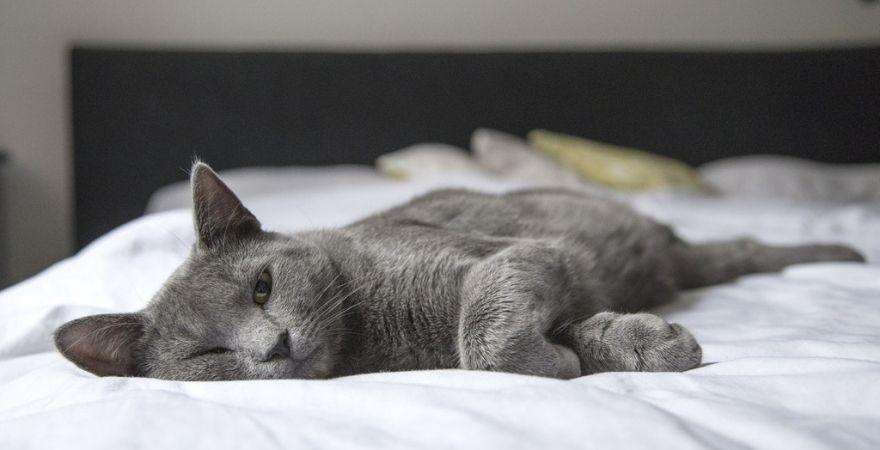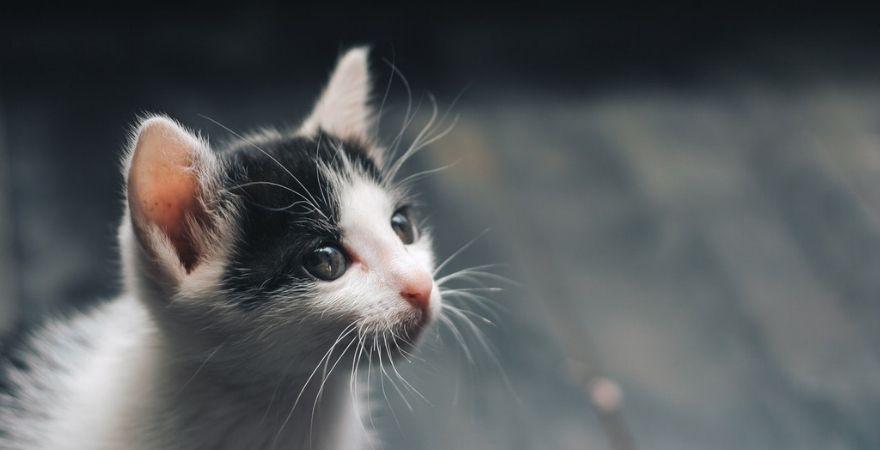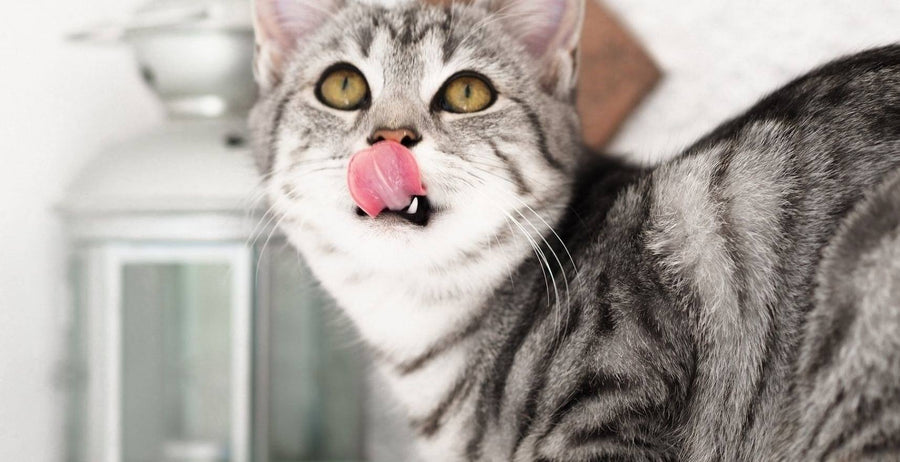not everything that's good for you is good for kitty...
Don’t you just love when your phone buzzes in the middle of making a snack and as you take your eyes off the meal kitty jumps up to try and sneak a bite?
If you’re the type to get hangry, no. No you don’t.

Photo by Kate Schreiber via Flickr.
Not that you *don’t* want to share, but the food you just blocked kitty from snagging could’ve done more harm than good — in fact, it might’ve been deadly. Whether it’s lacking the nutrients kitty needs to stay healthy, or could trigger a decline in a major body function (organ failure for example), some foods are just in the NOT FOR KITTY ZONE. Here are some human foods that are not-so-great/ toxic for cats and why :
chocolate
Aside from sometimes containing milk (which cats already have a hard time digesting, but we’ll get to that soon), chocolate also has theobromine, an ingredient found in cocoa. Theobromine causes liver failure in cats. Some of the signs you can look for if you think kitty has gotten into your stash and ingested chocolate:
- Restlessness
- Vomiting
- Diarrhoea
- Increased rate of breathing
- Increased heart rate
- Heightened temperature
- Seizures
- Muscle rigidity

Photo by Ginny via Flickr.
milk
Contrary to what we’ve grown up seeing in movies — or even in real life — cats are actually lactose intolerant, which only gets more acute when they stop drinking their mother’s milk. In short, cats don’t need cows’ milk. If the idea of your sweet kitty lapping milk from a saucer still appeals to you, you can look out for the following afterwards:
- Diarrhoea
- Vomiting
- Abdominal pain
- Bloating
- Gas
- Constipation
Instead, a bowl full of cool fresh water should always be available for kitty to drink, since water is essential to kitty’s digestive system and overall health.
Plus it’ll still make a cute Instagram post!

Photo by Guy Montag via Flickr.
raw meat
While cats are natural carnivores, the safest way for them to have meat is thoroughly cooked, unseasoned and without bones. Serving kitty raw meat puts them at risk of salmonella (a bacteria-related illness behind most food-related illnesses), and choking/broken teeth if said uncooked meat still has bones inside.

Photo by Marco Verch via Flickr.
grapes & raisins
Grapes and raisins sit high on the DO NOT FEED KITTY THIS list, since they trigger the start of kidney failure. If you must-must-must keep raisins or grapes around, the fridge is fine — but nowhere in the house is the safest bet. Ditto for citrus fruits.

Photo by tribp via Flickr.
garlic & onions
Cats can’t eat any foods from the onion and garlic family because it can lead to digestive problems. If they’ve eaten a large enough amount, onions, garlic, or similar food can damage kitty’s red blood cells which leads to anemia.

Photo by Hefin Owen via Flickr.
dog food
Feeding a cat dog food is like using one of those multi-purpose products... the kind that “cleans” your hair, body, teeth and clothes — it will get the job done, just not very well. While it is okay to feed your cat dog food in an emergency (you’ve run out of cat food and didn’t realize until kitty’s meal time), dog food doesn’t have enough protein or the specific nutrients (like taurine and arginine — they’re found in meat) cats need to stay healthy. One day is alright, but feeding kitty dog food over a period of time causes nutrient deficiencies, which means one step closer to kitty getting sick.

Photo by Graham Berry via Flickr.
(un)honorable Mentions
Some of these may surprise you, others should have been a no-no, but here are some other bad food items for kitty:
- Coffee, Tea, or anything with caffeine
- Coconut milk
- Alcohol Seeds
- Cooked bones
Food shouldn’t be scary, in theory. And we’re not suggesting you ditch your famous charcuterie board (for when you had other people over to impress with...sigh) for kitty’s sake. As long as you’re keeping the foods that can harm kitty out of reach, and check out the list of healthy foods you can share with them, everything will be just fine.
Also, don’t check your phone while making snacks — especially if the snack-making involves sharp, pointy or hot objects.

Photo by Martijn Nijenhuis via Flickr.

Stephanie Pollard
Writer. Pet Enthusiast. Ambivert.




2 comments
One of my cats absolutely loves plain yogurt so I give her a tablespoon from time to time. I had thought it might be good for her since it has probiotics but apparently not?
Thanks for the info. Many of those I knew about, but there were a few I was unaware of.